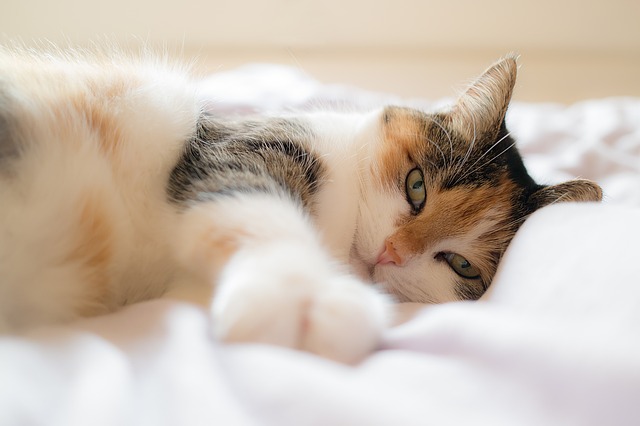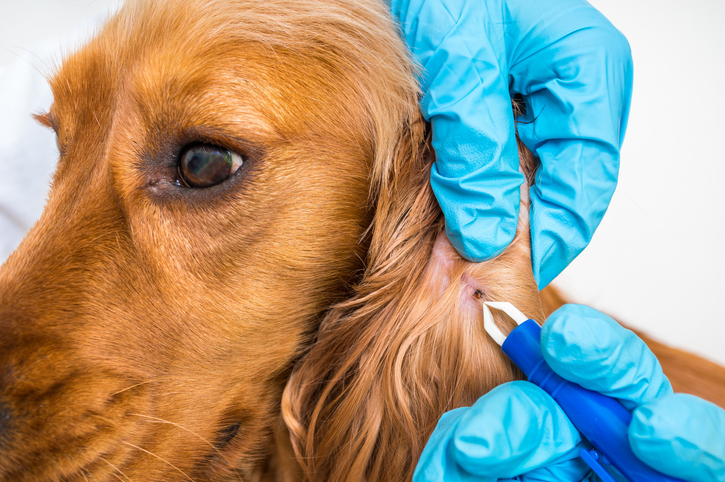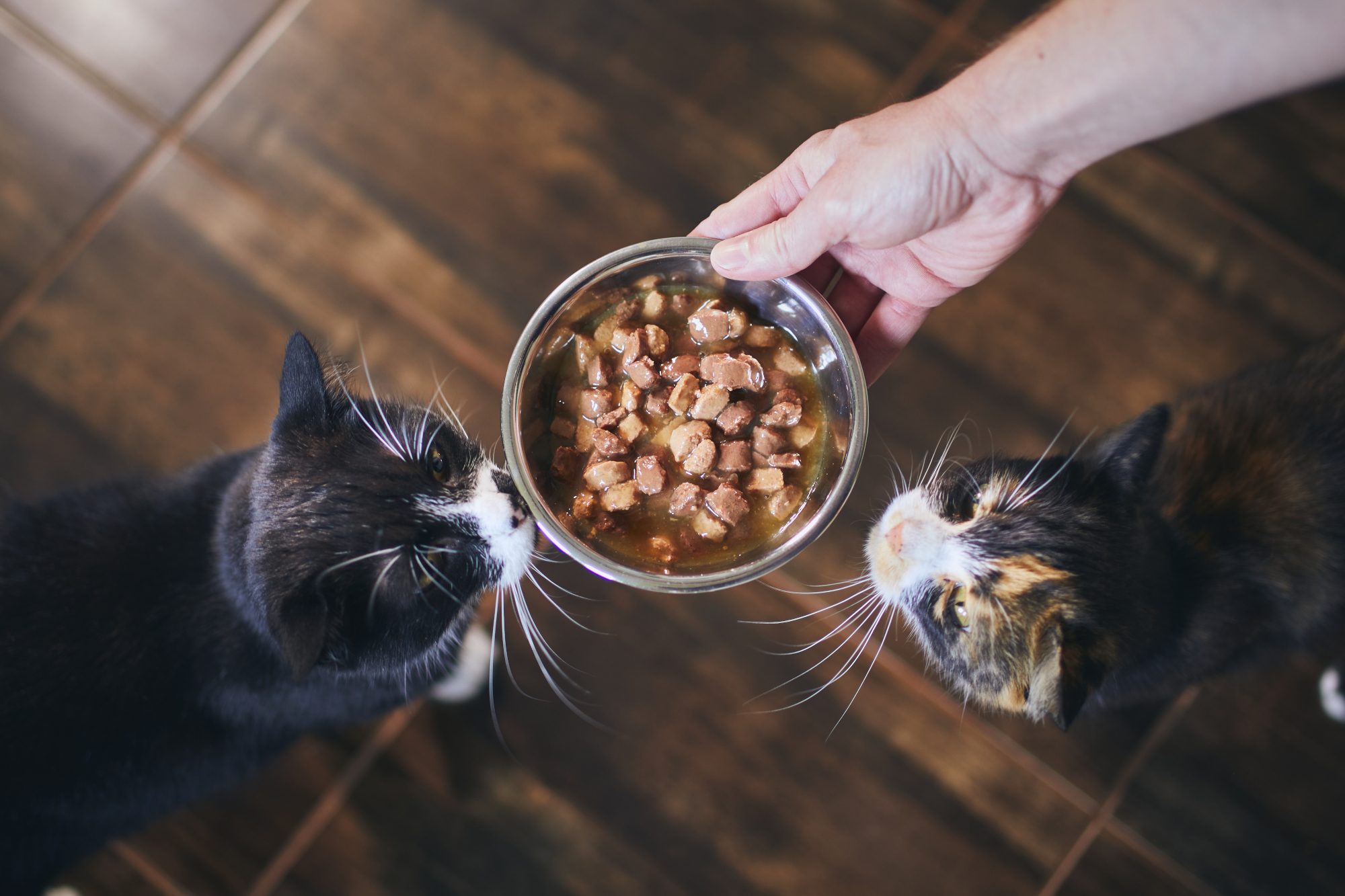Did you know that? It’s true—cats catch colds just like humans do. Normally if they catch a cold the symptoms will clear up in a few days. Still, it’s best to stay alert and take your kitty to a veterinarian for testing and treatment if those signs last longer than a few days.
The symptoms of a cat cold are the same for humans: sneezing, watery eyes, runny nose, fever, a loss of appetite and energy, and even a loss of the voice (i.e., their meow). However, as with humans, the symptoms could be caused by something more serious than a mild cold and should not be ignored.
Cats Show Cold Symptoms Under Certain Conditions
Feline cold symptoms can be caused by exposure to a variety of organisms. Symptoms, therefore, can be the result of:
- Exposure to, and infection from, bacteria or a virus or a combination of both spread by direct or indirect contact with other cats who are contagious or have a chronic condition, or by contaminated objects.
- A secondary infection that develops after a few days of experiencing a simple cold, which increases the intensity of the symptoms or of particular symptom, depending on where the secondary infection strikes.
Symptoms of a simple cold will usually clear up in anywhere from two to ten days. If it continues or does not improve beyond the initial couple of days, take your kitty to a veterinarian.
Sometimes Cats Can be Particularly Vulnerable to Colds and Infections
Cats can’t spread their colds or diseases to humans, nor can they catch them from humans; however, they can catch and spread colds and diseases to and from other cats. Your cat’s resistance to colds is reduced by a weakened immune system, which can occur under a variety of stressful conditions:
- Cats are usually unhappy about changes in their routine or their surroundings, like moving to a new residence, a family member leaving home or a newborn arriving, their main caregiver no longer at home most days, or a new pet being introduced into the household. Stress from such changes may lead them to be more vulnerable to viruses and the flu.
- A cold will weaken your cat’s immune system and make him more vulnerable to secondary infections that can follow a simple cold.
A weakened immune system caused by any number of stressful situations can lead to the development of an illness or a secondary infection, especially in young kittens and older cats.
Watch for Signs That Kitty Needs Treatment From a Veterinarian
If your cat shows symptoms of a cold and then develops more severe symptoms such as difficulty breathing, or a worsening of any of the other symptoms, you should wait no longer and should take your kitty to your veterinarian for a proper diagnosis and treatment. Here are some of the possibilities that cause most upper respiratory infections (URIs) in cats:
1. Viral Infections
There are two main viral infections that can cause cold symptoms, and they are the herpes virus and the feline calicivirus (FCV), both of which are very contagious between cats. Fortunately, ill effects of these viruses can be prevented by making sure your kitty’s standard vaccinations are kept up to date. These vaccinations greatly reduce the symptoms and the severity of these illnesses.
Feline Herpes Virus – This is similar to humans only in that a cat may have it for life. It’s best to have your cat vaccinated against herpes as a kitten and then take booster shots when required. This will help your cat develop more antibodies to fight the disease. Although there is no treatment that will completely cure the herpes virus, good overall care and prompt treatment of symptoms from the virus can help cats live a very normal life.
Feline Calicivirus – There are unfortunately hundreds of strains of this virus that your cat can catch, and if they do catch one of them, afterwards they may become a chronic carrier if their immune system is too weak.
This is why regular vaccinations are very important, because if your cat encounters one of the strains included in their vaccine, your cat will probably show nothing more than sneezing and a runny nose. However, there is a slight chance that they may catch a strain that has mutated over time. If this happens, your kitty may develop ulcers on the tongue, throat, roof of the mouth, and around their nose—take them to your vet for treatment at once!
2. Bacterial Infections
There are three main bacterial infections that cause cold-like symptoms in cats: mycoplasma pneumoniae (feline infectious anemia), bordetella bronchiseptica (feline kennel cough), and chlamydia psittaci (feline chlamydiosis). Fortunately, all of these infections can be remedied with antibiotics.
If your cat shows symptoms of a cold plus conjunctivitis (similar to “pink eye” in humans), they may have contracted Mycoplasma, which is very common, or possibly the rarer Chlamydia. If he or she has a cold accompanied by coughing and gagging, it’s possible they have kennel cough, although this is rare in cats. Your veterinarian will know how to test for these infections and will prescribe the best medicine for whatever infection it is.
How to Prevent Your Cat from Catching a Cold
You can introduce viruses and bacteria into your home on your clothes or your skin, which means that even an indoor cat can catch a virus or any other infection. Most cats catch illnesses from other, unvaccinated cats. If you have more than one pet, or if you let your cat outside even for brief periods of time, it is doubly important to use precautions.
- Make sure your kitty has all the booster shots they need as advised by your veterinarian.
- Ask your vet if there is any merit in taking a supplement when your cat is under stress—moving, leaving home for any reason, introducing a change into the household—to keep their immune levels at maximum.
- Regularly clean and disinfect items that your cat shares with any other pets (e.g. litter boxes, bowls, blankets, beds, and carriers).
- Make sure that any new pets introduced into the household have been checked over by a veterinarian.
How to Reduce Kitty’s Discomfort if They Have a Cold
There are some things you can do to reduce kitty’s discomfort if and when he or she has a cold:
- Never give your kitty medications intended for humans, but do make sure you give them all the medication prescribed by their veterinarian for as long as you are directed. Don’t stop just because your pet seems better. If you’re having a hard time persuading them to take the medication, ask your veterinarian for help.
- If a stuffy nose keeps kitty from eating a normal amount of food, try enticing them with special treats. You can also try soaking dry food in warm water, or offering a little wet food.
- Keep an eye on their water bowl and make sure they’re drinking as usual, and urinating and defecating normally. If there are any issues, consult your veterinarian.
- Playing with your cat to keep them happy in a hot and steamy bathroom may help open up your cat’s airways and make them more comfortable.
- Your cat will love warm blankets for their bed!
- You can gently clean the discharge from their eyes and nose with a warm washcloth.
Having the cold whether you’re a cat or a human stinks! If your cat’s caught one, always watch them carefully and take them to your veterinarian for testing and treatment if they’re not back to normal within a few days.
Creative Commons Attribution: Permission is granted to repost this article in its entirety with credit to Hastings Veterinary Hospital and a clickable link back to this page.






